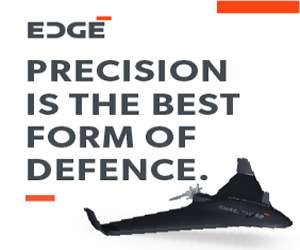In a speech given on February 28 at a European Parliament plenary session, Ursua von der Leyen said that, over the past few years, Europe has faced a harsh awakening, challenging several long-held beliefs about its security, economic stability, and geopolitical standing. The ongoing war in Ukraine, initiated by Russia, has starkly highlighted these challenges, marking a significant shift in the European security landscape. This conflict, now in its third year, has grown increasingly entrenched and intense, undermining the illusion of permanent peace and revealing the limitations of Europe's previous security strategies.
Follow Army Recognition on Google News at this link

Ursula von der Leyen, President of the European Commission: "In the last years, many European illusions have been shattered. The illusion that peace is permanent. The illusion that economic prosperity might matter more to Putin than destroying a free and democratic Ukraine. The illusion that Europe on its own was doing enough on security – be it economic or military, conventional or cyber" (Picture source: European Commission)
The rise of authoritarian regimes, notably evidenced by North Korea's and Iran's support for Russia, underscores a broader geopolitical realignment. These developments, coupled with the ongoing conflict in Gaza and instability in the Middle East, signal a period of heightened insecurity and conflict, extending beyond regional confines to impact global stability. This era is also characterized by aggressive economic competition, posing direct threats to European security.
The response to these challenges requires an urgent reevaluation of European security architecture, encompassing military, economic, cyber, and conventional security measures. The need for a comprehensive approach to counteract political interference, reduce dependencies on hostile entities, and protect critical infrastructure is evident. Europe's approach must be multifaceted, aiming not only to counter military aggression but also to address broader societal vulnerabilities.
The past years have also seen a significant shift in European unity and resolve, particularly in support of Ukraine. This period has debunked myths about European solidarity and capacity to provide substantial support in times of crisis. The emphasis on European sovereignty, highlighted by Sweden's pending NATO membership, reinforces the continent's commitment to self-reliance and defense of its values and interests. This sovereignty is seen as complementary to, rather than in conflict with, existing alliances such as NATO, and is crucial for Europe's long-term security and stability.
Significant steps have been taken to enhance Europe's defense capabilities, including increased defense spending, support for Ukraine through the European Peace Facility, and investments in critical defense technologies. These efforts are part of a broader strategy to double European ammunition production and enhance the continent's defense industrial base.
The proposed European Industrial Defence Strategy aims to prioritize joint procurement and innovation, reducing fragmentation and increasing interoperability among European defense forces. The establishment of an Office for Defence Innovation in Kyiv symbolizes a deepening of Europe's defense collaboration, leveraging Ukraine's battlefield experience to foster innovation.
However, realizing these ambitions requires bold decision-making and a collective commitment to a new European defense mindset. The European Investment Bank's readiness to support defense projects, the emphasis on supporting small and medium-sized enterprises, and the proposal to use frozen Russian assets for military purchases underscore a proactive approach to defense funding and development.
The narrative ultimately calls for a profound reassessment of Europe's security strategy, urging immediate and coordinated action to address the multifaceted threats facing the continent. The urgency of these challenges demands a unified European response, emphasizing the importance of sovereignty, innovation, and collaboration to ensure a secure future. The call to action is clear: Europe must take decisive steps to safeguard its security, values, and way of life against an increasingly complex and dangerous geopolitical landscape.
Defense News February 2024
















